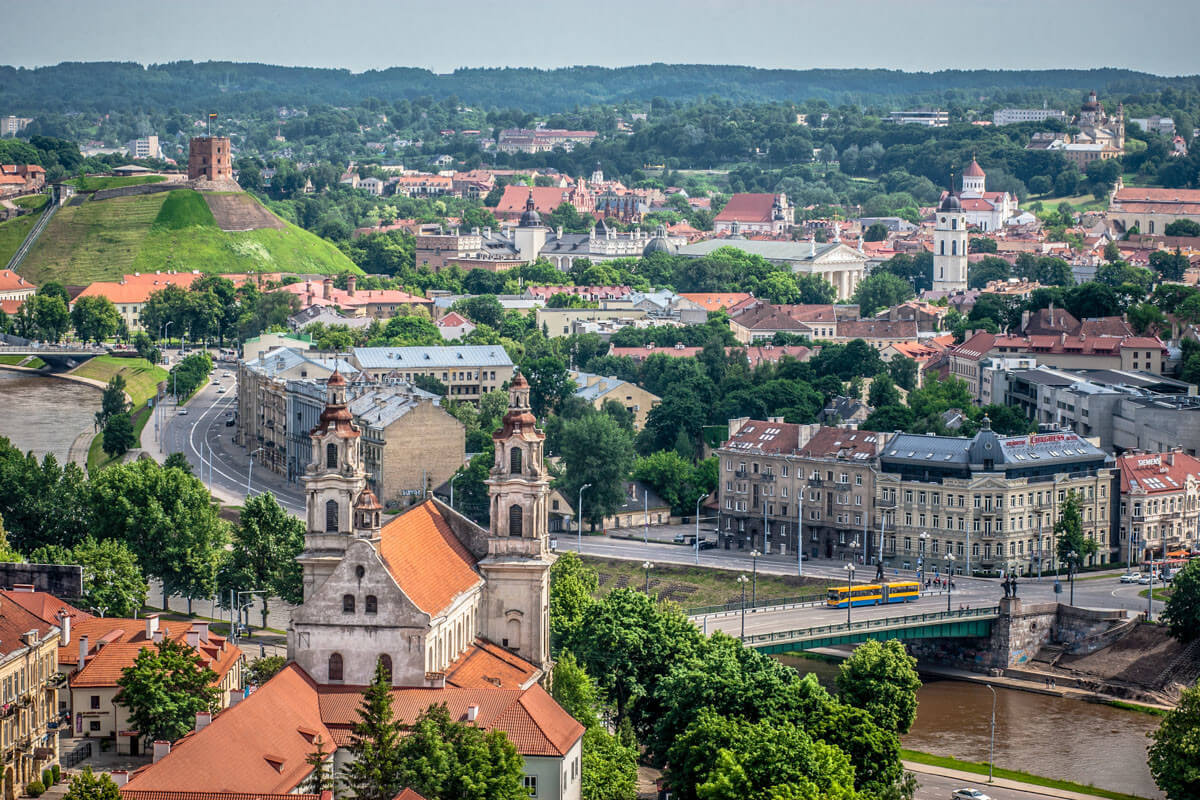
Lithuania is a small nation in the Baltic region of Europe. Despite being small, the country has a rich culture and a long-standing tradition of imparting quality education. The education system in the country has undergone many positive reforms in the past decades. International students can choose from around 40 higher education institutions offering over 500 academic programs. The academic programs follow the European Credit Transfer System (ECTS) and are recognized globally. As Lithuania is a constantly growing economy, there is a high demand for skilled professionals in multiple disciplines. Study in Lithuania programs are a pathway for students from different nationalities to land a successful career and contribute to the growing Lithuanian economy or other European countries.
Lithuania is home to the oldest university in the Baltic region which includes Lithuania, Latvia, and Estonia. The Vilnius University established in 1579, is the oldest and most prestigious public university to study in Lithuania. This university, located in the capital city is a top choice among international students. As per the latest data, Vilnius University has around 2000 international students from over ninety countries across the globe.
There are also several other popular universities offering study abroad programs for international students. The Kaunas University of Technology (KTU) is located in the second-largest city in Lithuania. KTU is one of the 14 members of ECIU or the European Consortium of Innovative Universities. The university implements the most innovative technology in education. Flexible learning pathways, challenge-based learning, and research options across multiple scientific disciplines are a few factors that attract international students to KTU for their study in Lithuania.
The higher education institutions in Lithuania are administered by the Ministry of Education, Science, and Sports of the Republic of Lithuania. Here are a few of the top universities in Lithuania that international students can consider for their studies in Lithuania:
The following is the list of the best cities in Lithuania with a good number of international student population and top universities.
Vilnius
Kaunas
Palanga
Klaipeda
Private University Scholarship Programs
Erasmus+ Program
Lithuania State Scholarship
TOEFL: 65 – 105
IELTS: 5.5-6.5
PTE Academic
The climate of the Lithuania can be described as typical European continental influenced climate with warm, dry summers and fairly severe winters. January is the coldest month with daytime temperatures usually around -5°C, but in some cases winter months can be quite colder with temperatures far below zero, about -20°C or lower and strong, cold northeasterly winds. Heavy snowfall or even snowstorms are also possible on some days. The weather is often breezy and humid due to the proximity of the Baltic Sea.

I had an excellent experience with ABC Study Links for pursuing my master's in Germany. Their support was invaluable, especially from Ms. Anjana, who was always there to rectify my mistakes and guide me in documentation and application procedure.



I had a fantastic experience with the ABC team while pursuing my higher education in Germany. Their team is highly efficient and incredibly helpful throughout every stage of the process.

Thanks to ABC study links for their splendid service. The services were excellent as there was systematic follow ups for any queries and the staff members are very helpful, supportive and knowledgeable especially Anjana, 😊 my visa officer, who guided me through the visa application process and clearing all my queries on time for Germany student visa.

Had a wonderful experience with ABC, they had been absolutely wonderful with engaging with the colleges and helping me out in getting admission. I was given a through assistance from Ms.Anjana who had been there to guide me throughout.
ABC Study Links, the leading study abroad consultants in Kerala, is the official associate of several foreign universities and is the largest of its kind in India for sending students to countries like the USA, Canada, UK, New Zealand, Europe, Central America, Singapore, Malaysia, China, and the Philippines.
©copyright 2024 abc study links. Designed By UFS Technologies
Social Chat is free, download and try it now here!